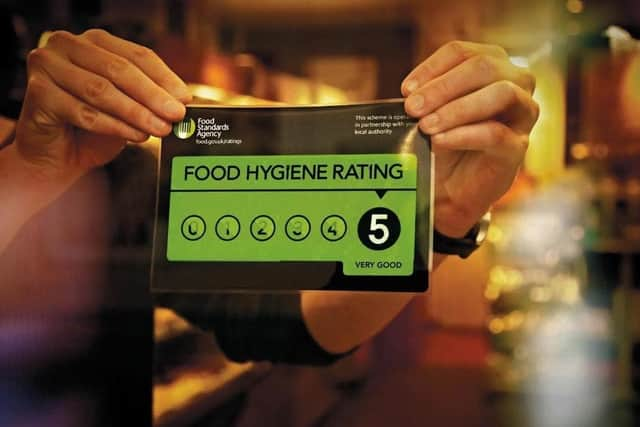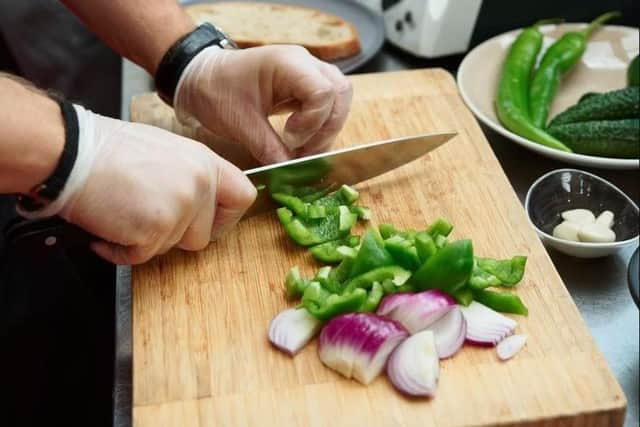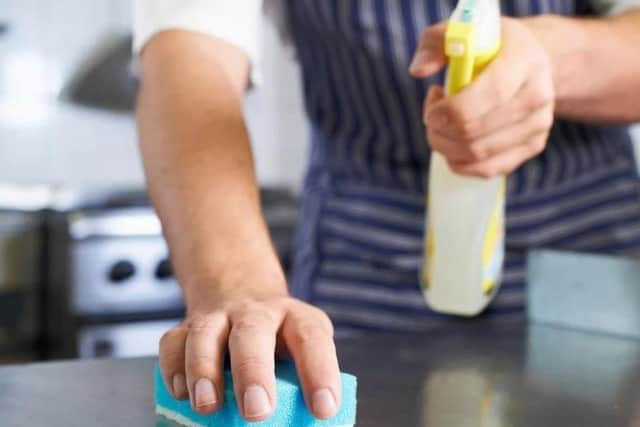Food outlets in Preston facing fee if they want to boost their hygiene rating
and live on Freeview channel 276
The city council is considering introducing a fee for businesses which want their score re-assessed quickly after carrying out improvements.
Food places are rated from 0 to 5 by council inspectors who make unannounced visits every 12 to 18 months.
Advertisement
Hide AdAdvertisement
Hide AdAt present those who score low can apply for one free re-grading if they complete recommendations made by the assessors.


But council chiefs are now looking to bring in a £165 charge, insisting the taxpayer should not be footing the bill for food businesses to improve their score and thus their turnover.
The fee will be approved by the authority unless it is called in for debate by the end of the month.
A report has revealed there are around 1,500 registered food businesses in the city. Yet only 10 answered a request for feedback about the change - and only three of those were in favour of paying a fee.
Advertisement
Hide AdAdvertisement
Hide Ad

The hygiene rating scheme was first introduced in England, Wales and Northern Ireland in 2010 in partnership with the Food Standards Agency to provide the public with information about the standards of businesses.
A top score of 5 means the outlet is rated "very good," 4 is "good" and 3 is "generally satisfactory."
But a score of 2 means "improvement is necessary," 1 is "major improvement is necessary" and 0 "urgent improvement necessary."
Around 97 per cent of all food businesses nationally achieve 3 or above. And the system has been praised for driving up standards in the 12 years it has been in place.
Advertisement
Hide AdAdvertisement
Hide Ad

As things stand, if a food outlet is given a low score and immediately carries out improvement work, it can take up to six months for that damaging rating to be improved, almost certainly having a detrimental effect on trade.
Under the new scheme any business wanting a re-grading will be able to pay £165 and be re-assessed in half that time. The fee has been calculated to only cover the re-inspection cost.
The report says: "Almost all Lancashire authorities either already charge, or plan to introduce a charge. Charges vary across the county up to £200.
"In the three years prior to the Covid pandemic there was on average 18 requests for re-inspection per year.
Advertisement
Hide AdAdvertisement
Hide Ad"The advantages of introducing a charging scheme are that a business business which has improved could gain recognition more quickly by payment of the council's charge to re-inspect.
"Businesses would pay for the cost of the council time to check the improvements they have made rather than this being funded by the council tax payer.
"A more up-to-date rating allows consumers to make an informed choice about where to eat.
"Overall ratings for Preston businesses could increase, which would be positive for overall consumer confidence about the city as a destination to eat out.
Advertisement
Hide AdAdvertisement
Hide Ad"The disadvantages of introducing a charging regime are that very small businesses that are unable or unwilling to find the modest cost of the re-inspection would retain the rating given at the time of the initial inspection until their next scheduled inspection, perhaps 12 to 18 months later, even though they have improved their food hygiene practices and/or resolved any structural issues."